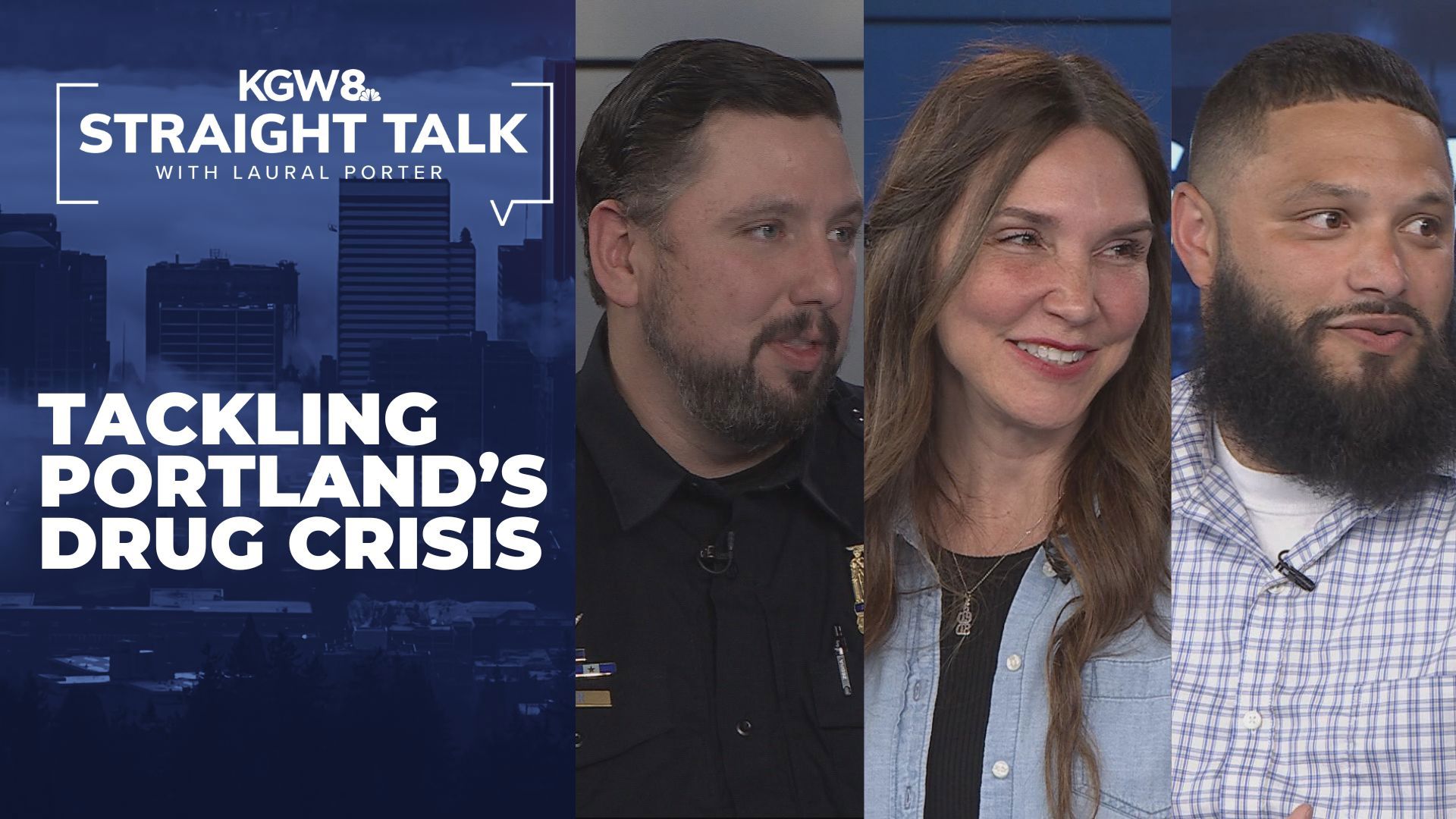PORTLAND, Ore. — The downfall of Oregon's Measure 110 was due, in part, to not fully living up to its promise of getting help for people with substance abuse issues. The number of treatment options available trailed behind the growing drug crisis seen on Portland streets. And as the crisis grew, so did the spotlight.
But beneath the light were several organizations trying to get people the help they need. On this week’s episode of Straight Talk, Laural Porter sat down with some of the people who are on the ground dealing with Portland’s addition crisis.
Meet the guests
Janie Guillick has battled with mental health and addiction issues, homelessness and incarceration. Now, she’s the executive director of the Mental Health and Addiction Association of Oregon, one of the state’s largest peer-run agencies that provides support to people seeking health care and housing. She was one of the co-sponsors of the original voter-led initiatives that eventually became Measure 110.
John Karp-Evans takes from his own experience in recovering from long-term substance abuse as the senior director of downtown Portland’s Behavioral Health Resource Center. Karp-Evans has been instrumental in the development of housing programs in the city that integrate culturally specific services. Recently, he was named a Hometown Hero at a Portland Trail Blazers game.
Officer David Baer, who leads the Central City Bike Patrol, developed a program that pairs police with service providers on interactions with drug users to encourage them to accept treatment options — instead of getting a ticket or going to jail.
Key questions discussed in this week’s episode
- What is the situation on Portland's streets?
- How do organizations help with Portland's drug treatment options?
- How do the benefits of peer support compare to traditional treatment options?
"Straight Talk" airs Saturday and Sunday at 6:30 p.m., and Monday at 7 p.m. "Straight Talk" is also available as a podcast.

